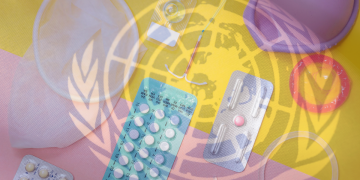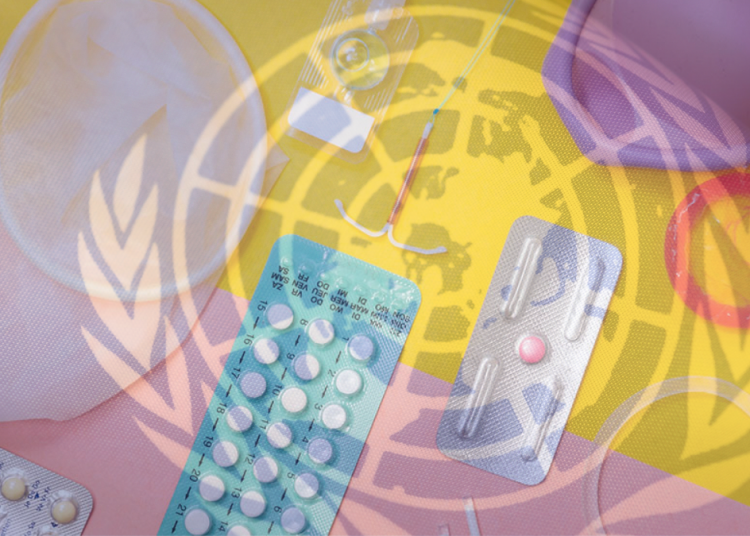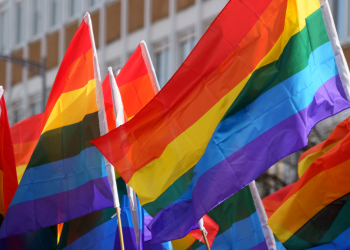Last updated on January 16th, 2021 at 01:29 pm
Speaking last September at the commemoration of the 75th anniversary of the United Nations, Secretary-General António Guterres observed that the UN “is only as strong as its members’ commitment to its ideals and each other.” The statement is remarkable not for what it says but for what it doesn’t say by failing to mention society’s foundational source of strength acknowledged in 1948 by the newly minted United Nations: “The family is the natural and fundamental group unit of society and is entitled to protection by society and the State.”
In so declaring, the wise drafters of the Universal Declaration of Human Rights left no doubt as to what they meant by family. “As reflected in the precise and elegant terms of the Universal Declaration,” observed the late Professor Richard Wilkins, “the family is not merely a construct of human will or imagination. The family has a profoundly important connection to nature” which “begins with the realities of reproduction… and extends to the forces that shape civilization itself…. The family, in short, is the ‘natural and fundamental group unit of society’ precisely because mounting evidence attests that the survival of society depends on the positive outcomes derived from the natural union of a man and a woman.”
Eleanor Roosevelt, who played a key role in drafting the declaration as chair of the Commission on Human Rights, fervently hoped it would become “the international Magna Carta of all men everywhere” and serve as “a common standard of achievement for all peoples of all nations.” And so it began to be as over a hundred nations around the world followed suit by declaring in their constitutions—as seen in our World Family Declaration—the same timeless truth that the family is society’s natural and fundamental building block, whether designated as unit, nucleus, cell, base, foundation, cornerstone, or by some other colorful iteration.
Meanwhile, the United Nations itself was following through with its commitment to the family, as seen in its 1959 Declaration of the Rights of the Child insisting that children should have the opportunity to “develop physically, mentally, morally, spiritually and socially in a healthy and normal manner and in conditions of freedom and dignity,” and, “wherever possible, [to] grow up in the care and under the responsibility of his [or her] parents.” And in various UN treaty and conference documents, the role of the family as society’s natural and fundamental group unit was repeated. A further step was taken in 1994 when the UN began celebrating each May 15 as the International Day of the Family, and celebrated that year as the International Year of the Family.
It was in 2004 at the tenth anniversary of the International Year of the Family when the General Assembly heard the US representative, Wade Horn, present one of the most powerful affirmations of the family ever pronounced in the chambers of the UN since the drafting of the UDHR: “Family is a universal and irreplaceable community, rooted in human nature and the basis for all societies at all times. As the cradle of life and love for each new generation, the family is the primary source of personal identity, self-esteem, and support for children. It is also the first and foremost school of life, uniquely suited to teach children integrity, character, morals, responsibility, service, and wisdom…. The state’s foremost obligation… is to respect, defend, and protect the family as an institution.”
We who were present that day were keenly aware that those words did not sit well with many of the listeners, for already the United Nations, in the grip of lavishly funded NGOs, had begun to renege on its commitment to protect the family. A major turning point had come in 1994 with the Cairo conference on population and development, followed the next year with the Beijing conference on women. Notwithstanding the numerous reservations taken in those conferences by individual nations as a condition to their joining consensus on the outcome documents, increasing pressure was applied in the ensuing years for every nation to conform to the anti-family and anti-life principles being pushed by the UN. Two delegates on two different occasions from two different countries each told me in almost identical words, “The UN is destroying our families!” Another delegate emerged from a tense negotiating session and confided that her country had just been threatened with the withholding of aid if she did not vote the “right” way on a divisive issue affecting children. She immediately added that neither she nor her country would submit to such threats.
The intensity of the battles over life and family at UN conferences and commissions is hard to imagine for anyone who has not been there in person, but Gabriele Kuby has offered this helpful summary: “Within a few decades [of its founding], the UN became an institution that would use its power and resources to change the image of humanity as declared by the Declaration of Human Rights and to replace universal moral values with relativistic postmodern ‘values’ as the foundation of culture…. Today the UN and its powerful sub-organizations fight for dissolution of men’s and women’s sexual identity [and] elimination of marriage and family” as part of “the global sexual revolution” which seeks “the destruction of freedom in the name of freedom.”
President Trump made history in standing up to the UN when he warned the General Assembly, “Global bureaucrats have absolutely no business attacking the sovereignty of nations that wish to protect innocent life.” His administration then demanded that the Secretary-General “remove references to ‘sexual and reproductive health,’ and its derivatives” from the Global Humanitarian Response Plan, and announced that it was “put[ting] down a clear marker. No longer can UN agencies reinterpret and misinterpret agreed-upon language without accountability.” The administration also led out in the historic 32-nation Geneva Consensus Declaration affirming that “every human being has the inherent right to life,” and “the family is the natural and fundamental group unit of society and is entitled to protection by society and the State.” And the final report of the administration-created Commission on Unalienable Rights condemned the pernicious practice—rampant in the United Nations—of undermining fundamental rights in the name of rights: “The effort to shut down legitimate debate by recasting contestable policy preferences as fixed and unquestionable human rights imperatives promotes intolerance, impedes reconciliation, devalues core rights, and denies rights in the name of rights.”
With the new Biden administration, the United States does an about face by joining ranks with the EU and powerful NGOs complicit with the UN in fomenting the global sexual revolution. How troubling is this? If, as historian Will Durant described, “The family has been the ultimate foundation of every civilization known to history,” then it comes as no surprise to learn what Michael Novak, former US ambassador to the UN Commission on Human Rights, explained: “What strengthens the family strengthens society.” And how can the family be strengthened? Novak answers, “The roles of a father and a mother, and of children with respect to them, is the absolutely critical center of social force” and the very sine qua non of civilization, for “throughout history, nations have been able to survive a multiplicity of disasters—invasions, famines, earthquakes, epidemics, depressions—but they have never been able to survive the disintegration of the family.” We invite you to join with IOF at this most critical time as we unite and equip leaders worldwide to defend what Pope Francis rightly calls our “greatest treasure,” the family.




















Discussion about this post